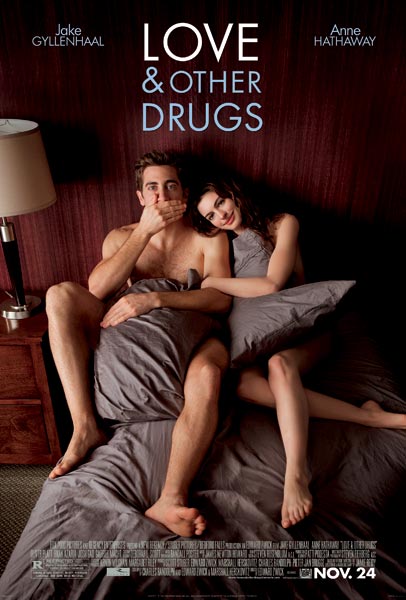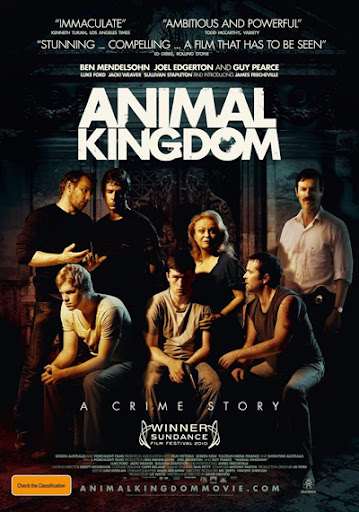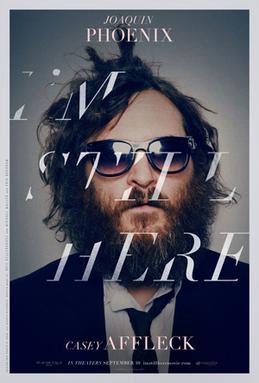
There is one scene in Love and Other Drugs that sets up why this film looked so promising. Unfortunately, this scene isn’t currently commercially available as a stand-alone segment, which is a shame as every other moment in this film is good for little more than encouraging you to drive a railway spike through your forehead. But for one moment in one scene, you can almost maybe just see into a parallel world where this movie wasn’t a total waste of time.
In this scene, our leads Jamie (Jake Gyllenhall) and Maggie (Anne Hathaway) are lounging around in a post-coital fugue, talking about… well, it doesn’t really matter: every line of dialogue in this film falls like lead shot from the lips of the cast, usually hitting the ground with a muffled thud, occasionally creating a clanger that will endure until the sun grows cold (“She’s Thai. And I’m Thai-curious”). But here they’re both rolling around on the bed with a – for Hollywood – surprising ease as far as nudity (mostly Hathaway’s) goes, creating an atmosphere that we don’t often get in western films. Two people who seem to like each other have just had sex, and now they’re soaking up the afterglow.
It only seems like a smart moment in the context of prudish western film-making, with its L-shaped sheets and one-time-only kisses. It that context, even this film’s depiction of a kind of relationship that we all know from real life but never see on film – a relationship built almost entirely (at first) on sex – seems daring. But being the world’s tallest dwarf is nothing to be proud about, and this one brief moment of relative humanity only makes the robotic dreck that surrounds it all the more painful.
Story-wise there are actually two stories going on here: one involves Jamie’s efforts to become the best-darn salesman for Pfizer he can be, but you needn’t pay too much attention to that one because the film is set in the mid- to late-1990s so along comes Viagra and even the most disinterested Sportsgirl salesgirl could sell that. It’s actually hard to remember a recent mainstream film where so much effort is devoted to such a major plot thread that ends up going nowhere: it’s not like he’s a slacker who lucks into a product that sells itself, or a loser whose career is saved by this awesome self-selling product – he’s a good salesman, being a good salesman is important to his self-image, and then this drug comes along that takes away all the skill and ability from his profession and… it just doesn’t matter. His arch-nemesis in drug sales vanishes from the film, his co-worker (Oliver Platt) gets half a scene at the end that means nothing –
[Actually, let’s explain that: Platt wants to be a success so he can get a gig back in Chicago close to his family, and he thinks Jamie’s slick ways will get him there. Platt’s character pops up every now and again to crack wise and dispense job tips, Viagra comes along and it’s money in the bank, and then we get a scene where we learn that Jamie is going to Chicago but Platt’s character isn’t. Viagra sells itself (or so we’ve been told), so why is Jamie getting a bump over his more senior colleague? No doubt there could be a dozen reasons, but the only one we’re given (sez Platt: “they need me here”) is presented as nothing more than excuse-making by a broken man. It’s a sign of how sloppy this film is: Jamie strives for success in a world where things happen for no reason, and yet we’re still expected to care about his success.]
-and otherwise, a few cheap and nasty gags about how drug salesmen work aside, this side of things adds up to nothing more than a bauble Jamie can throw away at the end to prove how much he loves Maggie. Because that one brief, mostly-naked bedroom scene aside, this is the kind of romantic comedy that runs on rails to a destination that only looks attractive from a long, long way away.
We learn three things about Maggie when we first meet her in a doctor’s surgery: she’s sassy, she has early-onset Parkinson’s Disease, and she’s got nice breasts. Surprisingly, of those three things it turns out that being sassy is the least important, as, after some slightly more spiteful than usual banter, she promptly invites Jamie home to her sweet loft for some no-strings sex, which soon becomes a regular event. The frequent sex is another thing that might fool more gullible viewers into thinking this film is smarter than it actually is: whereas most Hollywood rom-coms restrict the sex scenes to one or (if they need to have the sex interrupted comically or start to go bad) two, this keeps ‘em coming well past the usual cut-off point.
The film makes no secret of the link it’s forging between her free-wheeling sexual ways and her illness. While it’s possible to see her illness as some kind of punishment for being a young woman who likes sex, lets give this film the benefit of the doubt and say that her illness (and awareness that for her, life as an able-bodied person is short) fuels her hunger for sex. It doesn’t fuel her appetite for much else tho – she’s an artist, she works in a café (good job paying for the sweet loft on that wage, especially as she can’t afford drugs and has to go to Canada on a bus for the cheap stuff), and there’s not a single “look at me and all the things I’m trying to cram into my life” montage anywhere to be found. She just likes to fuck. A lot.
Which, when you think about it, is pretty fortunate for her. After all, why else would Jamie want to be with someone with an incurable illness unless she was constantly up for it? There’s nothing else to her character her to suggest any other reason for him to fall in love with her, after all – she’s constantly pushing him away verbally, she’s got the whole illness thing going on – if she didn’t want to sleep with him all the time, why would he bother hanging around? Don’t blame me if this sounds offensive: while it may be possible to come up with another reading of the situation here, it’s hard to ignore the way this film constantly re-enforces the sexual nature of their relationship in a way that most other Hollywood romantic comedies and dramas don’t. Considering there’s almost nothing else to her character, it’s difficult not to read this as “hey, why else would you fall in love with a Parkinson’s sufferer?”
Offensive to both men and women this undoubtedly is, but at least it fits in somewhat with the jerk Jamie seems to be. And in some early scenes together their horrible, stilted, clichéd dialogue almost makes sense: he’s a heartless jerk, she’s a victim desperately trying to keep life at arm’s reach, no wonder their dialogue sounds clichéd: they’re both saying things they don’t really mean about emotions they’re not actually feeling. But then everyone sounds that bad all the time in every situation and it turns out the script is just really poorly written. Oh well.
Sadly, this film dubious approach to Parkinson’s doesn’t stop at the suggestion that the only way a sufferer can hope to get a man is by being extremely hot and sexually available. For a while its lightweight and unrealistic approach to the illness, while kind of annoying, is no more annoying than anything else here. She’s sick, only she’s the kind of sick that doesn’t actually seem to have any real affect on her life; oh well, back to bed we go. But then she goes to a meeting of Parkinson’s sufferers – presumably played by actual Parkinson’s sufferers – and things take a turn for the offensive. It’s one thing to drag an actual illness into a fantasy rom-com: it’s another thing entirely to try and justify it by bringing out actual real-life sufferers to bolster your offensive drivel.
[not to mention it’s a completely pointless scene: supposedly it empowers Maggie to take control of her life and illness, only to then be followed by a series of scenes where Jamie drags her around to doctors and clinics desperately trying to find a cure. Girl power!]
The result is a film that constantly plays around with elements it has no idea how to use. Time and time and time again it throws up a scene or idea that could be interesting, only to run away from the implications as fast as it can. Jamie and Maggie’s relationship can’t stay no-strings, it has to become a traditional rom-com relationship right down to the last minute dash by one partner to chase down and win back the other – seriously, in 2010 someone still thought this was a good way to end a movie.
We’re constantly told that there will be no cure for Maggie’s illness, but then we’re never shown her actually falling ill: the film’s final moments are just a touchy-feely montage, despite the fact that it’s set in the late 1990s so jumping forward to the present day would seem like the most logical ending in the world. Even if it was just to show Jamie still lovingly caring for a disabled Maggie, that would still be marginally more confronting that the total avoidance of the issue that this film serves up.
But surely there’s at least a few side elements that don’t completely stink up the cinema? Hell, no: from a totally insane running gag about a crazy homeless man who gets his life together thanks to taking anti-depressants he steals from a dumpster – which might have been funny in an Airplane!-style slapstick film, not a supposedly cynical real-world drama – to the amazingly unfunny no-name brand-Jack Black role of Jamie’s brother, this is all-to-wall painful.
This is, after all, a film whose idea of comedy is to have Jamie come home to find his brother – a former internet millionaire whose career has gone so far down the toilet he now lives with his brother, where his mission in life is to act like a total dipshit and whose character arc concludes with him discovering that he doesn’t actually like meaningless sex – masturbating to a sex tape Jamie and Maggie made. That’s right: he’s beating off to a tape of his own brother having sex. It’s very, very, very difficult to think of a film in which this kind of thing might be seen as comic relief. Salo perhaps?
By the end it’s hard to figure out why anyone involved thought this was a good film to make. It’s not like they’ve shown any real desire to follow through on any aspect of the story that’s being told. The relationship is blanded out as fast as possible, Jamie’s personal issues are totally glossed over or ignored, his career turns out to have meant nothing, the idea of actually educating the audience about how drug sales work in the US medical system is barely touched upon and then only in the most benign fashion, any possibility of a Vigara-based sex-farce is quickly squashed (there is one scene where Jamie rushes to the emergency room with an erection that won’t go away, but we never see the offending boner – or even a decent laugh-getting bulge in his shorts – and the scene just… ends, with no punchline beyond a nurses’ eye-rolling), Maggie’s character quickly degenerates into yet another mildly whiney victim who’s biggest problem isn’t the incurable and debilitating illness she suffers from but that she’s “afraid of love” (sigh), and the whole things ends in a way that leaves little more than the impression the film-makers had no idea how to end things.
This is a film where one lead suffers from a terminal illness but we hardly see her getting ill; the other is supposedly a self-absorbed, sex-obsessed cad who somehow becomes a devoted, self-sacrificing boyfriend at the earliest possible opportunity. A medical system run by drug salesmen is nothing to worry about, success in your career means nothing and has nothing to do with you anyway, drugs have no down side that isn’t funny and coming home to find your brother masturbating to a tape of you having sex is a minor glitch. Man, I need a drink.
Anthony Morris















